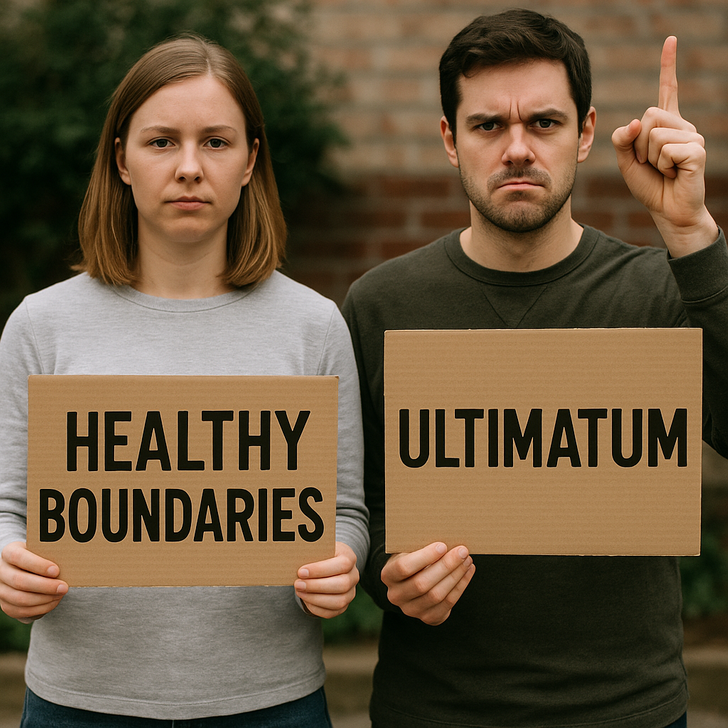She disrespected your values and conditions for staying in your home. THAT is a big deal. Goof for you for getting her out of there. Your husband needs to grow a spine. He knew your "rule" for MIL visiting; if he had a problem with it deal with it before she arrived and have her stay in a hotel.
I Had One Vegan Rule in My House — My MIL Broke It, So I Taught Her a Lesson

The letter:
"When I married my husband, I knew his mom and I were total opposites. She’s old-school, loud, and absolutely obsessed with steak. I’ve been vegan for eight years — not preachy, just strict about what gets cooked in my kitchen.
Last month she came to stay with us for a week. Beforehand, I told her, “You’re welcome to eat whatever you want when we go out, but in my house, no meat. My kitchen, my rules.” She laughed and said, “Oh, we’ll see.”
On day two, I came home to the smell of bacon. She was at my stove, frying it in my pan, using my wooden spoon. When I said, “I asked you not to,” she rolled her eyes and said, “It’s just breakfast. You’re too sensitive.”
I took the pan, dumped the bacon in the trash, and calmly said, “If you can’t respect my home, there’s a hotel five minutes away.” She packed her bags that afternoon.
Now my husband’s family says I humiliated her and “chose food over family.”
My husband is mad.
Am I a bad person?
Sincerily,
L.
Thank you to our reader for sharing a story that proves even small everyday moments — like cooking breakfast — can test love, respect, and boundaries.

Conflicts like this often aren’t really about food — they’re about control. Psychologists say that when someone ignores your household rules or being too strict with rules, it’s rarely accidental. It’s a way of testing boundaries and dominance. Standing firm doesn’t make you rude; it shows emotional maturity and self-respect. Setting limits in family dynamics protects relationships from resentment later on — because mutual respect always starts with clear boundaries.
Setting Healthy Boundaries: The Difference Between Boundaries, Control, and Ultimatums
Ever felt guilty saying “no” to your mom’s third favor request this week? Or drained after a friend’s three-hour venting call? Maybe you’ve even wondered if asking your partner to text when they’re late makes you too controlling.
That’s where boundaries come in.
Boundaries aren’t about pushing people away — they’re about keeping relationships healthy. But the tricky part? Sometimes boundaries can look like control from the outside. And sometimes, what people call “boundaries” are really ultimatums in disguise.
What’s the Difference Between Boundaries, Control, and Ultimatums?

Boundaries
Boundaries are like emotional property lines. They define what’s okay for you and what’s not — without trying to control anyone else.
They focus on your own actions and choices, not other people’s behavior. Healthy boundaries protect your well-being and respect that others are free to make their own decisions.
Examples:
“I need an hour to decompress after work before talking.”
“I don’t lend money to friends — it complicates things.”
“If this turns into yelling, I’m going to step away and finish the conversation later.”
Control
Control is different. It’s about trying to dictate someone else’s actions — who they see, what they do, how they think. It usually comes from fear, insecurity, or a need to manage outcomes.
Examples:
Checking a partner’s phone every day “just in case.”
Telling a partner which friends they can see.
Making all household financial decisions without input.
Control feels suffocating because it takes away autonomy — and trust.
Ultimatums
Ultimatums sound like boundaries, but they’re really demands with threats. They use fear to get compliance rather than communication to build understanding.
Examples:
“If you don’t sign these papers, I’ll leave.”
“Move closer to my family or we’re done.”
“It’s me or the dog.”
While sometimes necessary in extreme cases (like abuse or addiction), most ultimatums damage relationships by replacing respect with resentment.
What It Looks Like in Real Life
Family
Boundaries:
“Dad, I can help twice a week, but I can’t do more with my schedule.”
“Mom, I love you, but parenting decisions are between me and Mark.”
Control:
“If you don’t raise the kids in our church, we won’t visit.”
“You skipped dinner again? Guess family doesn’t matter to you.”
Boundaries create relationships based on mutual respect, not fear. They help you love freely — without losing yourself.
12 Stories That Prove Kindness Isn’t Just a Trait, It’s a Quiet Superpower
Comments
Related Reads
Our “Romantic” Vacation Was Hijacked by My Wife’s Family—And It Forced Us to Reevaluate Our Relationship

I Refuse to Let a Strange Lady Touch My Rare Birthmark for "Good Luck"—Now I’m Being Threatened

12 Touching Stories That Capture the Complicated Journey of In-Law Relationships

16 Moments That Teach Us to Keep Our Kindness, Even If Life Turns Cold

My Job Interview Turned Into Several Days of Free Work—I Turned the Tables

14 Stories That Prove Kindness Is the Most Powerful Force on Earth

My Brother Has No Kids but Refuses to Share His Inheritance With Mine—I’m Furious

I Refused to Be My In-Laws’ Emergency Motel—Snowstorm or Not

18 Stories Where Kindness Made It Human Again

I Refuse to Let My Parents Use My Success Story After They Called Me a Failure

12 Moments That Show Romance Is Really About Small Acts of Kindness

14 Stories That Prove Relationships Can Take the Wildest Turns
